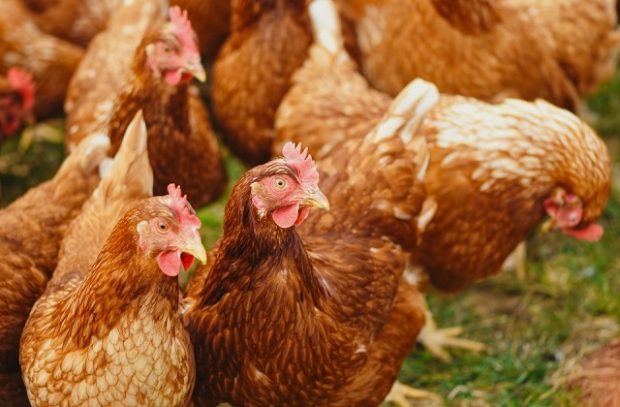
There was coverage over the weekend including in BBC News Online, the Independent, Guardian, Sunday Express, Sunday Mirror, The People, Daily Mail, the i and Sky News of new measures to help protect poultry and captive birds, following a number of cases of avian influenza in both wild and captive birds in the UK.
The new housing measures, which will come into force in England, Scotland and Wales on 14 December, mean that it will be a legal requirement for all bird keepers to keep their birds indoors and to follow strict biosecurity measures in order to limit the spread of and eradicate the disease.
Public health advice is that the risk to human health from the virus is very low and food standards bodies advise that avian influenzas pose a very low food safety risk for UK consumers, and it does not affect the consumption of poultry products including eggs.
Government Chief Veterinary Officers are encouraging bird keepers to use the next 11 days to prepare for new housing measures, including taking steps to safeguard animal welfare, consult their vet and where necessary put up additional housing.
A joint statement from Great Britain’s three Chief Veterinary Officers said:
We have taken swift action to limit the spread of the disease and are now planning to introduce a legal requirement for all poultry and captive bird keepers to keep their birds housed or otherwise separate from wild birds.
Whether you keep just a few birds or thousands, from 14 December onwards you will be legally required to keep your birds indoors, or take appropriate steps to keep them separate from wild birds. We have not taken this decision lightly, but it is the best way to protect your birds from this highly infectious disease.
For more advice and regular updates on the latest situation, visit Governments’ avian flu pages: in England, Scotland, Wales and NI.
4 comments
Comment by B Butler posted on
A neighbour's birds are still running about in their pen. It is immediately below an electricity pylon and wires where many corvids, starlings and pigeons perch. These then come and mix with songbirds at neighbouring bird feeders.As this person flouted the rules the last time also, what can be done? He doesn't speak to neighbours. He doesn't think rules are for him.
Comment by LEA BARRIE posted on
How many weeks are they to stay in?
Comment by Mark Shelton posted on
Over the last 2 weeks my pet duck and hen have died suddenly. They had Diarrhea and swelling, couldn't eat, little discharge. They were always kept away from my other 10 hens and none of those have shown any signs and are healthy. Have become ill with chest pains and bronchitis too. No energy. Not got any covid symptoms though and recently had test which was negative. Have been isolated, all alone in back room. Maybe just seasonal flu which I get bad every year anyway. Am in Derby..
Comment by John baxter posted on
Put 50000 chickens in 50000 square feet housing, protect with antibiotics from a pharma and animal and plant research conglomerate, and do not expose to fresh air and sunlight and you will be able to deliver a ‘chicken’ to a ‘consumer’, who has tasted nothing but tasteless chicken in his life at an unbelievably low price.......and you might be able to ship it halfway round the world included in that price.
You could on the other hand opt for a bird that was not bred by big agribusiness, saw sunlight and inhaled fresh air outside, where, with a better appetite it less efficiently produced more expensive chicken. The taste would be that of chicken ,the price would be higher and we would all benefit because in the long term we would find it sustainable and affordable.
The price of Covid 19, added to the price of cheap tasteless chicken produced by large scientific inputs of genetics,pharmacy ,foodstuffs and logistics adds up to a lot more than the current environment we have created......think about it!.